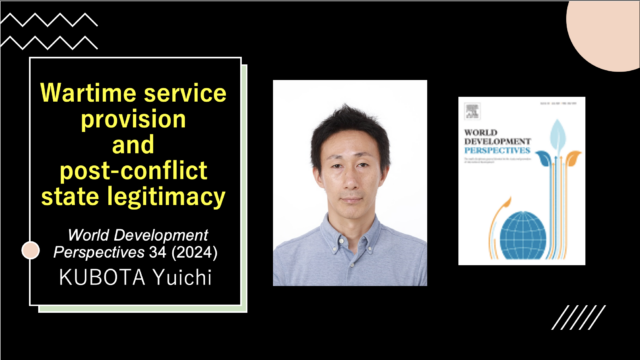Promoting a peaceful environment is integral for reconstruction in conflict-affected societies. However, the absence of violence does not immediately result in endeavors for development because a post-conflict state often lacks a popular base of state legitimacy. This article explores how and why civilians’ perception of state legitimacy rises and declines as a result of wartime experiences on service provision.
Implementing a questionnaire survey in northwestern tribal areas in Pakistan, specifically the former Federally Administered Tribal Areas, Kubota et al. reveal that state legitimacy is strongly perceived by civilians who have received public services from the state and weakly by those who have been exposed to rebel services. State legitimacy has an important role in political stability and national collectivity needed for post-conflict sustainable development. As wartime civil–military relations persistently influence civilians’ perception of political legitimacy, post-conflict reconstruction needs to take locals’ experiences into consideration so that the development initiatives can be legitimate and sustainable.To access the article published in June 2024, please click the link below.
(16/09/2024)





